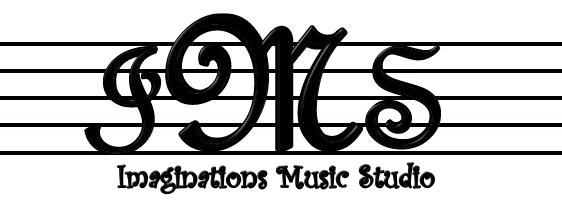Last night I attended a seminar from Kindermusik International on music and child development. I thought I had heard all the studies about this subject before but there was so much more information presented last night.
Music and literary development
In a study in 1998, those adults with music training had 17 % better verbal memory than those who had no music background. Also, there was physiological evidence in this in their brains-- the musicians had enlarged left cranial regions! Verbal memory is the ability to retain vocabulary in your short term memory. This is important to early reading and comprehension skills.
Phonemic awareness is the appreciation of the sounds of speech as being separate from their meaning and understanding that words are divided in to a sequence of phonemes. Children who have developed these skills are a lot more successful in learning how to read.
Rhyming songs, vocal play, listening to and predicting rhymes are a way that we build these skills in a Kindermusik class. In a 1995 study, 5 Kindergarten classes in a title 1 school were divided in to groups. One group received 30 minutes of musical instruction per week. The study determined that the group with musical instruction had significant gains in phonemic awareness.
Music and Math development
A 2002 study found what we already know, there is a direct correlation between music study and spacial reasoning. But why? Spacial reasoning is manipulating visual images in the mind. Think about how many times we do this in Kindermusik class or piano lessons? We look at high and low on the staff as well as high and low on the keyboard. We learn the meaning of musical symbols, and the relationship of one note to another. Math skills are also developed by counting and grouping beats, learning time signatures, sorting, learning fast and slow, and learning to see and recognize patterns. In 1999, Kindermusik was used in a study by Bilhartz. After observing 71 four and five year olds from diverse ethnic and economic backgrounds, those who had 30 minutes a week in a Kindermusik class along with instruction at home with the At Home materials, showed enhanced spacial temporal reasoning by the end of the study.
Social and emotional development
I was more surprised by what I learned in this portion of the seminar. I had never thought of this before, but a child's social and emotional development directly correlate to their success in school. Think about a brand new Kindergartner. Which child will learn more in class? The one who cannot control his impulses, or the one who waits his turn? The one who never learned to quietly listen to instruction, or the one who has plenty of practice at active listening. A 2007 Penn State study showed that learning self regulation (self control) is essential to Kindergarten readiness. In another study, 207 different in school socio-emotional programs were analyzed. The children who received some kind of training in socio-emotional skills, scored higher on standardized achievement tests than those who did not.
In 2005, a study a George Mason University showed that out of 91 3 and 4 year olds, those currently enrolled in a Kindermusik class showed a higher level of self control than those not in Kindermusik.
http://www.divinecaroline.com/22189/70780
http://www.crt.state.la.us/arts/ArtBuilt/quotes.html


No comments:
Post a Comment